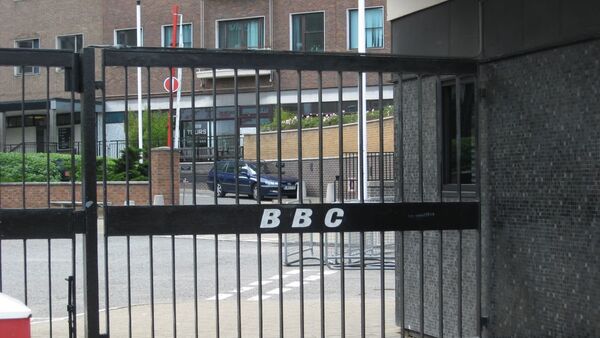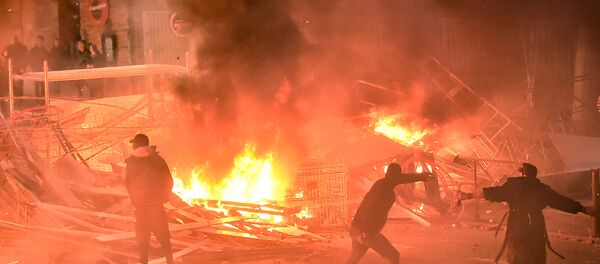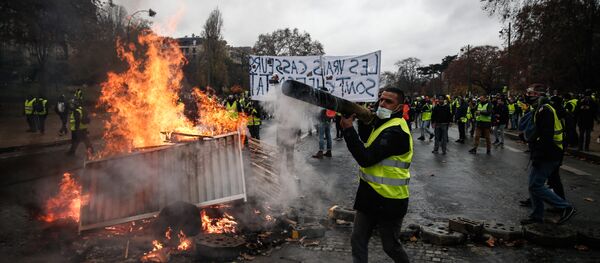On December 9, French Foreign Minister Jean-Yves Le Drian said that the French Secretariat-General for National Defense and Security (SGDSN) was looking into media reports about Russia's alleged involvement in the rallies. The Russian authorities, in turn, have stressed that Moscow considers the protests as France’s internal affair, and called claims of Russia's alleged involvement slander.
On Sunday, BBC Russia correspondent Olga Ivshina admitted that the broadcaster was in the search of any proof of Moscow’s alleged masterminding the ongoing French rallies, and demanded that its journalists seek any leads that would point to Russia. Ivshina said about this in correspondence with a Russian correspondent, who covers the rallies from the French capital, in a bid to find out whether Moscow had anything to do with the events.
The BBC's London office later confirmed to Sputnik that its correspondent from the Moscow office was indeed looking into Russia’s alleged role in the "yellow vest" protests.
"It is just continuation of McCarthyist witch hunt against Russia which is a some kind of tactic to cover up the misjudgment or the wrong policies of certain states," Kasonta said.
It is somehow counterproductive for BBC and the Western media to pin every blame on people’s disapproval of countries’ policies on Russia, because, for example, what the RT broadcaster is showing now is how the "yellow vests" are protesting, and the reasons why they are protesting, something the Western media and politicians are being blind to, the expert noted.
"They are not willing to reassess their policies to ask themselves a question why these people went out to the streets and what was their motivation… BBC is trying to wage a war against Russia… RT is showing a counter-view, and the same is what Sputnik is doing," Kasonta said.
If something goes against the mainstream narrative, it is somehow automatically to be blamed on Russia, the expert added.
People as global citizens have the right to be exposed to different views and form their own opinion, Kasonta stressed.
"But when the BBC is waging a one-sided campaign against Russia for 'meddling,' it is ridiculous," the expert said.
"It is something organic within the societies. It is natural that in democratic societies people sometimes take the power in their own hands and they go to the streets in order to riot," Kasonta said.
The "ever-growing" NATO, the United States and the United Kingdom are the ones who are profiting from scapegoating Russia, and BBC just sets the pitch for this process, he concluded.
READ MORE: BBC Accused of Using Actor to Play Pro-Brexit Panelist on Newsnight
Commenting on the issue, Russian Foreign Ministry spokeswoman Maria Zakharova urged the UK public to assess the activities of the BBC broadcaster, which had always been "advocating for an unbiased and independent approach," while in reality, was seeking at any cost to find any "proof" of Moscow’s alleged role in the "yellow vest" protests, and was effectively engaged in producing fake news.
RT and Sputnik’s editor-in-chief Margarita Simonyan, in turn, said that BBC's reports about alleged Russia's trace meant that the broadcaster's employees were following the instructions of higher-ups, who made decisions on what kind of news should be delivered. She also expressed her regret that the broadcaster's Russian branch and a Russian national were involved in the situation.
The views and opinions expressed in this article are solely those of the speaker and do not necessarily reflect Sputnik's position.



